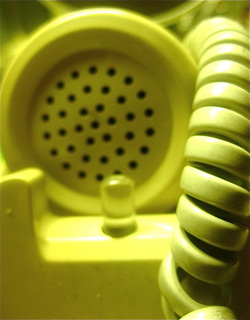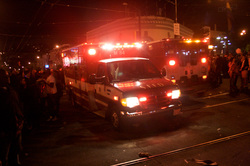
Very rarely do we answer a wake up call in life. But, life finds a way to leave a message.
Alfred Nobel was lucky enough to check his messages. After reading an obituary about himself that was accidentally published he realized he had to turn his life around. He did not want to be known as the man who created dynamite and caused so much damage so he changed his legacy and established the Nobel prize.
Most of us are not able to read our own obituary during our lifetime. We must create a space in time in order to take stock of our life and discern what course we are heading down.
This week's Parshah discusses Shmitah, which is an agricultural cycle prescribed by the Torah that demands the land rest once every seven years by not working the fields.
What did people do during the shmitah year?
The Shmitah is deeply connected to Shabbos. Shmitah is once every seven years, Shabbos is once every seven days. We rest on both. During both of these periods we use this time for learning Torah, being with loved ones and spiritual pursuits such as the contemplation of the direction of our life.
In today's society we are bombarded with information 24 hours a day seven days a week from our phone. If we don't set aside time for reflection, for course correction, it will never happen. The Shmitah year and shabbat give us an outlet to take stock of our lives, relax and check our messages.
Alfred Nobel was lucky enough to check his messages. After reading an obituary about himself that was accidentally published he realized he had to turn his life around. He did not want to be known as the man who created dynamite and caused so much damage so he changed his legacy and established the Nobel prize.
Most of us are not able to read our own obituary during our lifetime. We must create a space in time in order to take stock of our life and discern what course we are heading down.
This week's Parshah discusses Shmitah, which is an agricultural cycle prescribed by the Torah that demands the land rest once every seven years by not working the fields.
What did people do during the shmitah year?
The Shmitah is deeply connected to Shabbos. Shmitah is once every seven years, Shabbos is once every seven days. We rest on both. During both of these periods we use this time for learning Torah, being with loved ones and spiritual pursuits such as the contemplation of the direction of our life.
In today's society we are bombarded with information 24 hours a day seven days a week from our phone. If we don't set aside time for reflection, for course correction, it will never happen. The Shmitah year and shabbat give us an outlet to take stock of our lives, relax and check our messages.

 RSS Feed
RSS Feed